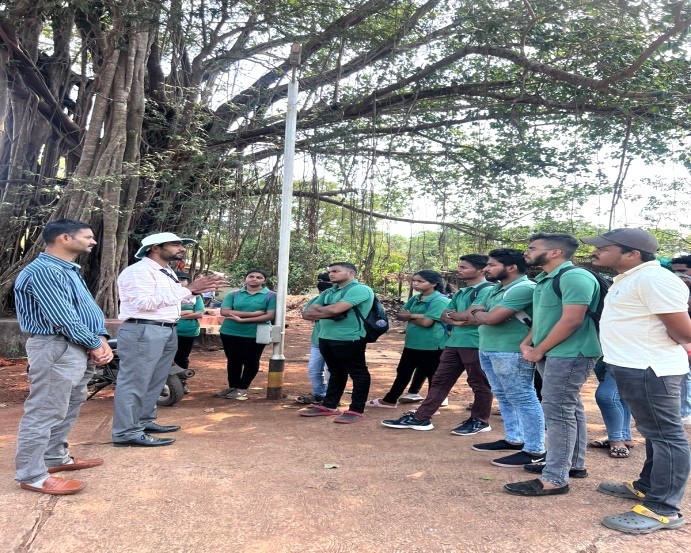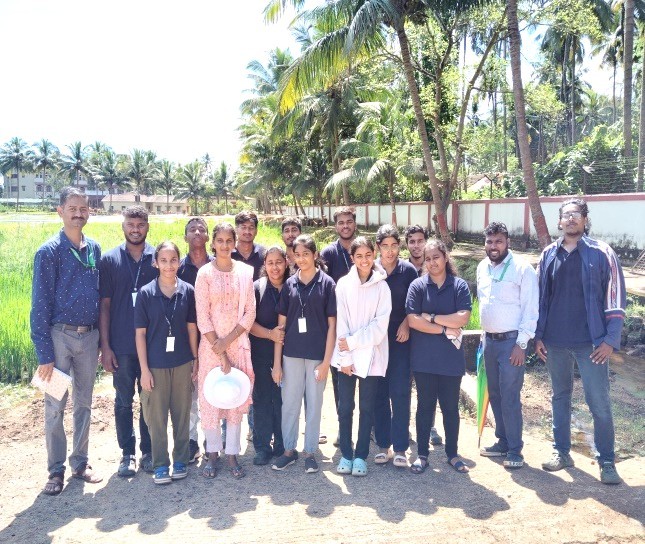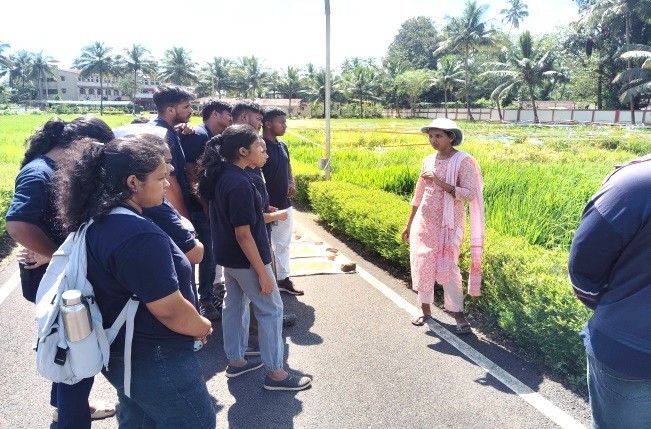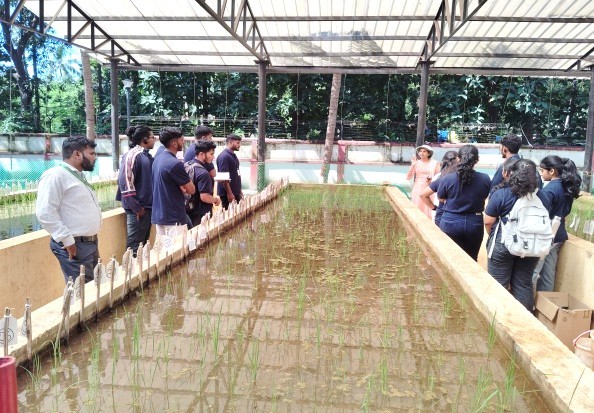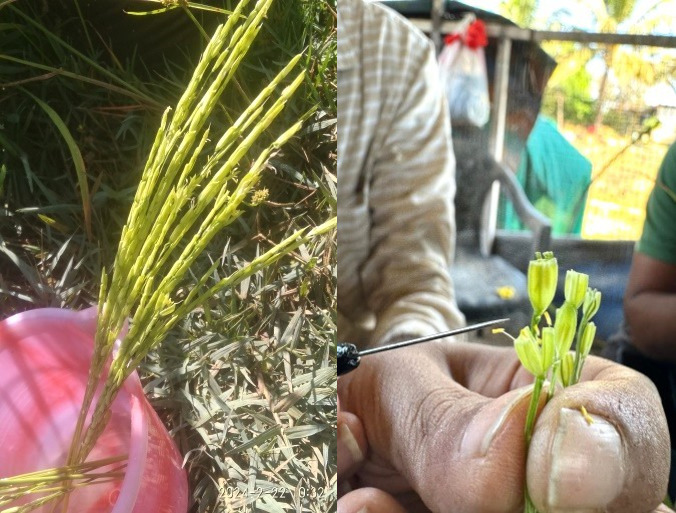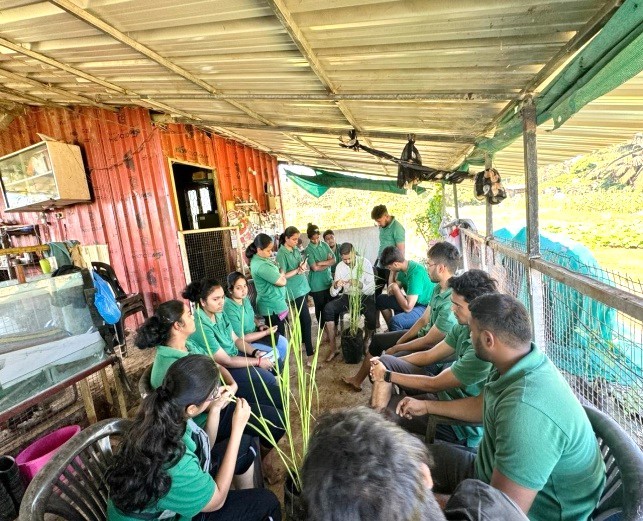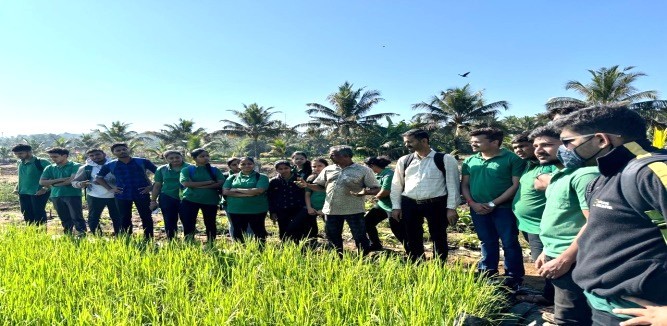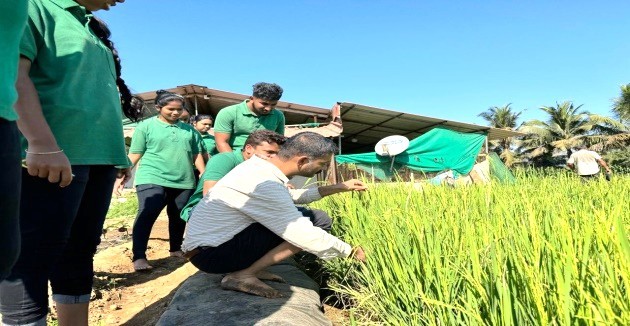Department of Agricultural Botany
About Agricultural Botany
Department of Agricultural Botany consists of different sub discipline like Genetics and plant breeding, plant physiology, seed technology and plant biotechnology.
Agricultural botany is crucial for creating novel, high-yielding hybrids and varieties for sustainable development, as well as for boosting output and productivity and feeding the world’s expanding population.
The department of Agricultural Botany is involved in teaching, practical, research projects, seed production and study tours. The department plays an active role in germplasm collection, conservation, evaluation and identification of new variety to Goan condition also involved in seed production of different crops. The department plays a significant role in educating farmers about new crop types and their varieties and associated seed production methods.
Faculty Members

- Young Researcher Award- Awarded in the 1st International Conference on “Natural Resource Management And Environmental Sustainability for Future Generations†organised by Government College, Hisar and Vital Biotech, Kota. April, 2024.
- First Prize in Paper Poster Presentation at Rajmata Vijayraje Scindia Krishi Vishwavidyalaya, Gwalior (M.P.) in National Seed Congress 2022.
- Contribution in variety release proposal in Sugarcane GNS-7.
- Contribution in state recommended proposal of different packaging materials on storage of cowpea, Dolichos Bean & Paddy seeds.
- Contribution in national level recommendation of finger millet cultivation. (Integrated approach for enhancing seed yield and quality in finger millet).
- Recommendation to farming community at National Level -2 (1. Reaffirming the validity periods of seed certification in field crops and 2.Mitigation of Terminal Heat Stress for Better Seed Yield and Quality in Field Crops).
- Contribution in Breeder, Foundation, Truthful as well as Gram Bijotpadan Seed production programme. (Paddy, Nagli & Vegetables).
- Members of Professional Societies – 10 No
- Qualified ICAR JRF examination.
- Qualified ICAR ASRB NET in the year 2010, 2011, 2012 for Assistant professorship by Indian Council of Agricultural Research, New Delhi, India.
- Research Publications-27, Book, Technical publications etc.

- Qualified ICAR-NET 2018 conducted by Agriculture Scientist Recruitment Board, New Delhi.
- Young Scientist Award in National conference on Doubling Farmers income for sustainable and Harmonious Agriculture, DISHA-2019, BAU, Ranchi, Jharkhand.
- Research Publications – 5 + 4 Quiz winner- Environmental Quiz Competition, On the occasion of World Environmental Day , 2022
Non-Teaching Staff
Courses in Department of Agricultural Botany
| Sr.No. | Year | Semester | Course No. | Credits | Course Title |
|---|---|---|---|---|---|
| 1 | Ist Year | II | GPB 121 | 3(2+1) | Fundamentals of Genetics |
| 2 | Ist Year | II | BOT 121 | 2(1+1) | Fundamentals of Crop Physiology |
| 3 | IInd Year | III | GPB 232 | 2(1+1) | Fundamentals of Plant Breeding |
| 4 | IInd Year | III | BIOCHM 231 | 3(2+1) | Fundamentals of plant biochemistry & biotechnology |
| 5 | IInd Year | III | ESDM 231 | 3(2+1) | Environmental Studies and Disaster Management |
| 6 | IInd Year | IV | GPB 243 | 3(1+2) | Principles of Seed Technology |
| 7 | IInd Year | IV | ELE BOT 242 | 3(1+2) | Micropropogation Technologies |
| 8 | IInd Year | IV | ELE GPB 244 | 3(2+1) | Commercial Plant breeding |
| 9 | IIIrd Year | V | BOT 353 | 1(1+0) | Intellectual Property Right |
| 10 | IIIrd Year | V | GPB 355 | 2(1+1) | Crop Improvement – I (Kharif Crops) |
| 11 | IIIrd Year | VI | GPB 366 | 2(1+1) | Crop Improvement – II (Rabi crops) |
| 12 | IVth Year | VII | RAWE 4703 | 1(0+1) | Agricultural Botany |
| 13 | IVth Year | VIII | ELM BOT 481 | 10(0+10) | Seed production and Technology |
| 14 | IVth Year | VIII | ELM BOT 482 | 10=0+10 | Tissue culture Technologies |
Courses Outcome
Students will learn basic concepts of genetics, cell structure, cell organelles and their functions, molecules like proteins and nucleic acids etc. They will know about mode of reproduction of different crop and their genetic consequences, breeding methods for crop improvement and biotechnological tools in crop improvement as well as recent advances in improvement of quality traits in different crops, biotic and abiotic stress resistance and their mechanism and genetics of resistance. They will understand the importance of germplasm conservation, conservation, evaluation and documentation as well as maintenance and use of plant genetic resources for crop improvement.
Students will understand about physiological mechanism of crops, physiological efficiency using conventional and biotechnological approaches for development of new cultivars, use of plant growth regulators and their mechanism and use.
In addition to this, students will learn seed production and certification of different self and cross pollinated crops, seed law enforcement, good quality seeds, marketing and packaging of seeds etc.
Projects:
1.Purification of local khola chilli
Activities:
1.Evaluation of different finger millets varieties in Goan Condition.
2.Cultivation of finger millets and Paddy.
3.Collection and conservation of germplasm of different crops.
Photos
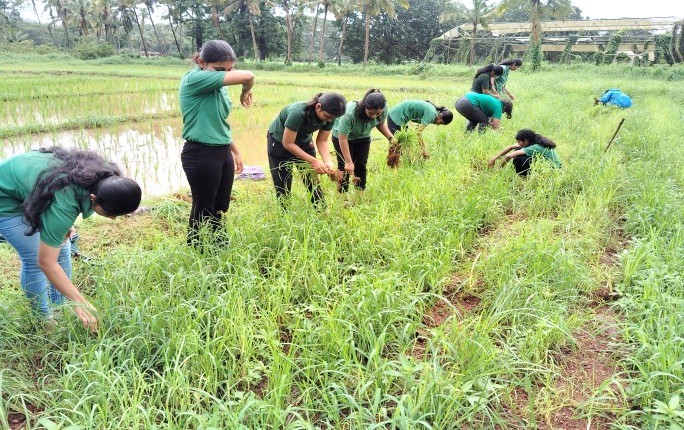
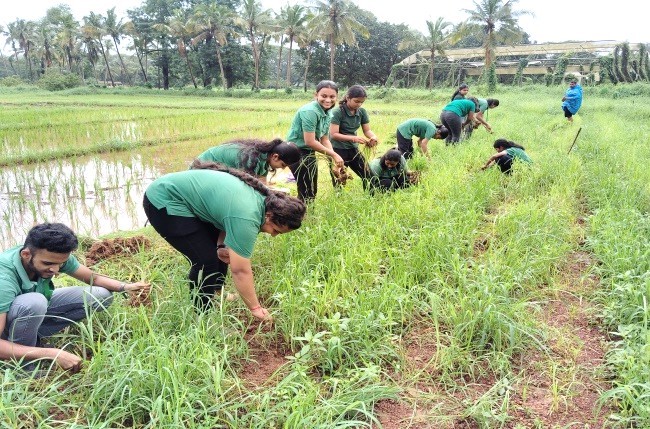
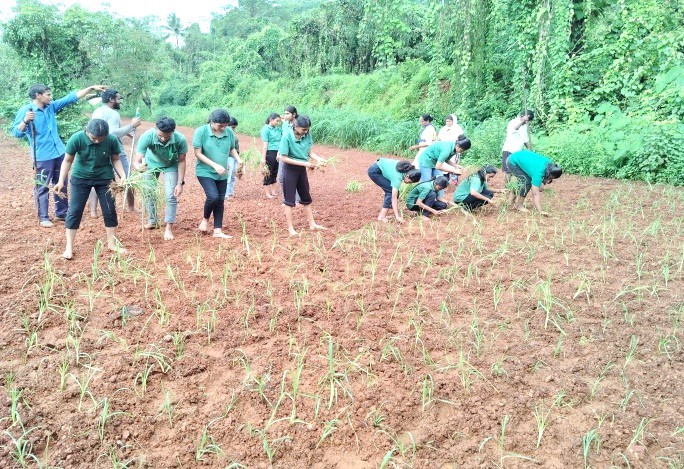
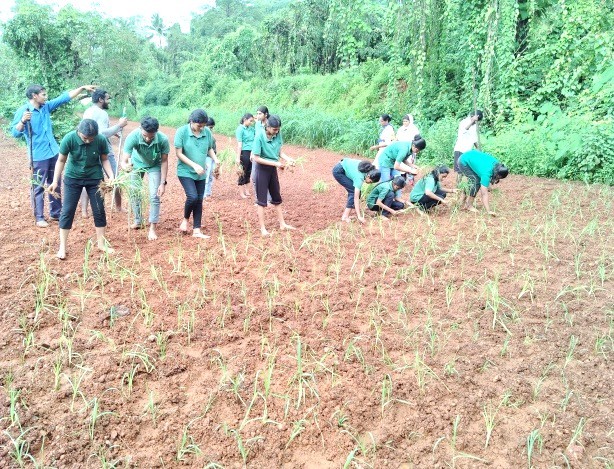
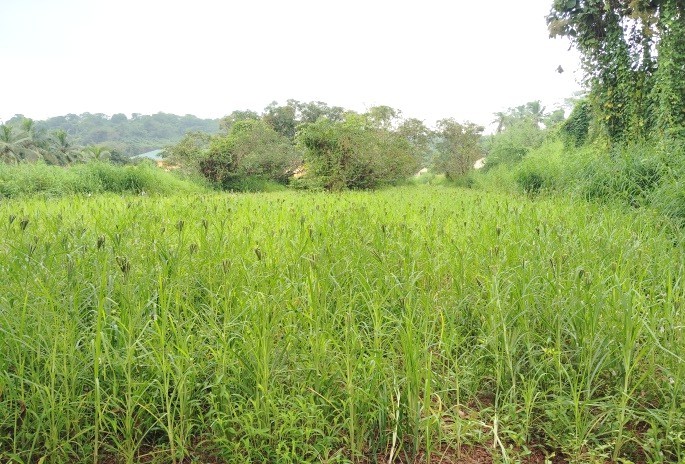
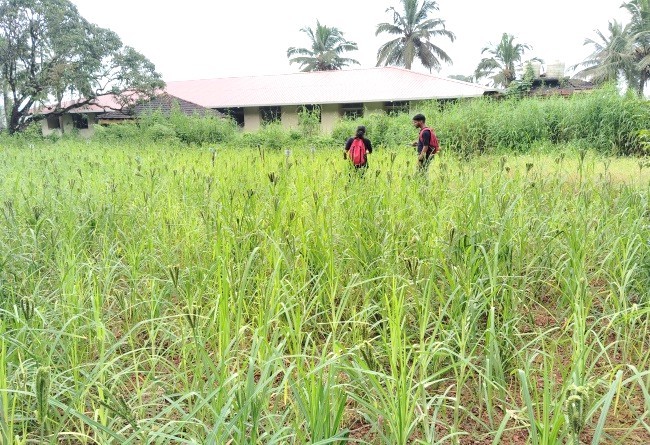
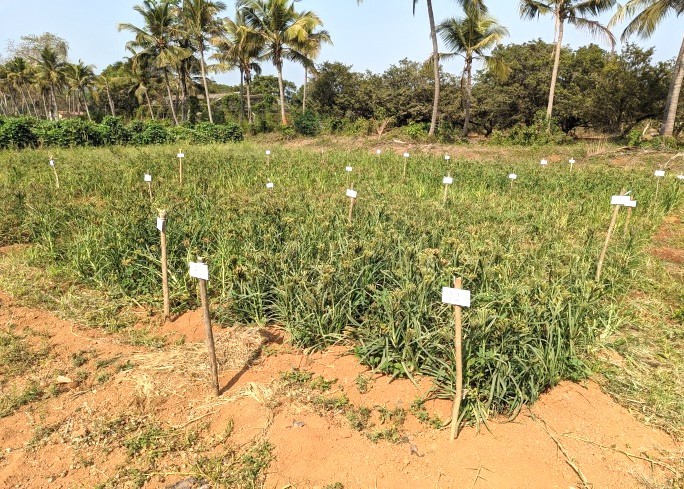
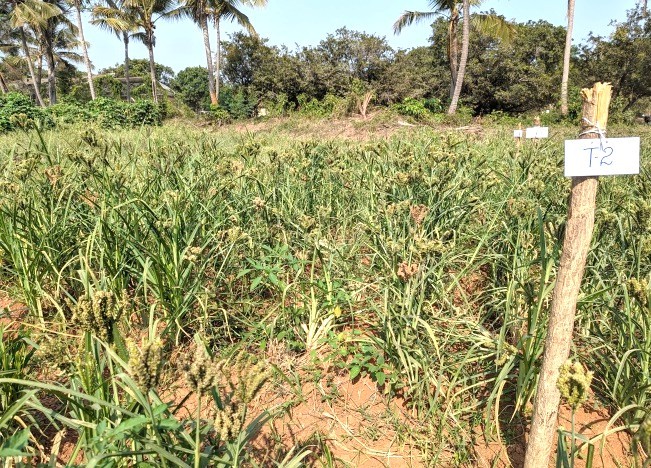
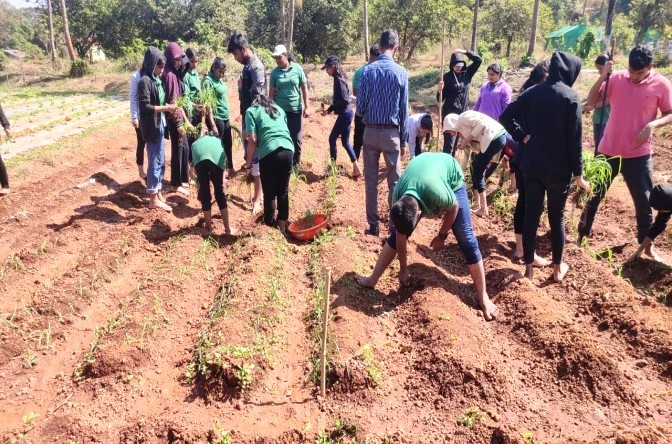
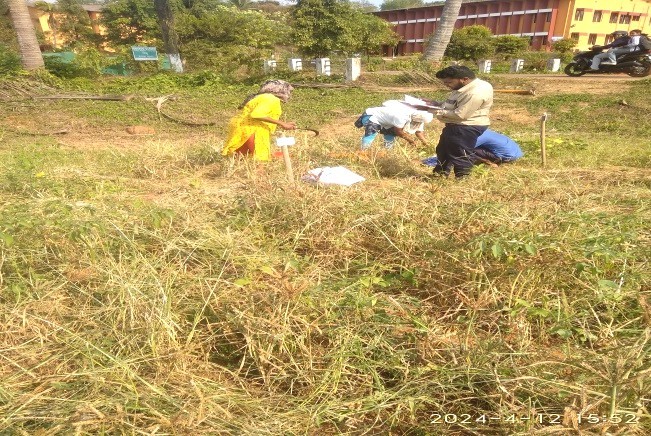
Field Visit
